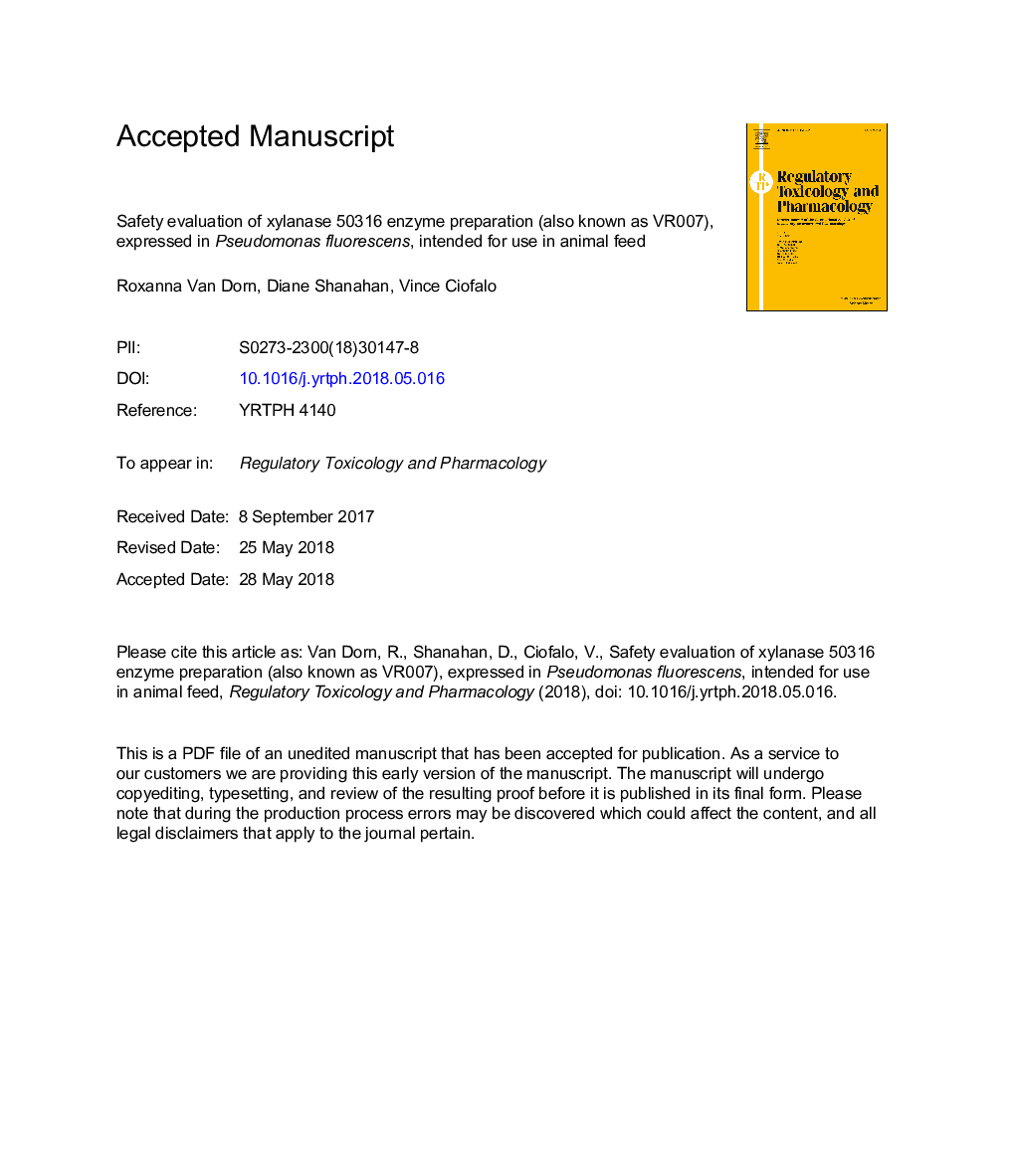| Article ID | Journal | Published Year | Pages | File Type |
|---|---|---|---|---|
| 8550877 | Regulatory Toxicology and Pharmacology | 2018 | 35 Pages |
Abstract
Xylanase 50316 enzyme (also known as VR007) can be added to the diets of monogastric animals to hydrolyze the glycosidic linkages of xylans that are found in these animal feeds. This enzyme was produced from a Pseudomonas fluorescens (P. fluorescens) production strain and was tested in acute, subchronic, and genotoxicity studies. Dosages of the test article preparation ranged from 5000 μg/plate for in vitro toxicity studies to 2000â¯mg/kg/day for in vivo toxicity studies. The highest oral dose tested in vivo (NOAEL of 2000â¯mg/kg/day) resulted in a safety margin of 7226 based on TOS and a conservative estimate of total poultry consumption at the highest inclusion rate. There was no toxicity reported in any of the studies conducted. A review of the public literature indicated that P. fluorescens fulfilled the recognized safety criteria pertinent to microbial production strains used in the manufacture of food/feed enzyme preparations. The results of the toxicity studies presented herein attest to the safety of the xylanase 50316 enzyme for its intended use.
Related Topics
Life Sciences
Environmental Science
Health, Toxicology and Mutagenesis
Authors
Roxanna Van Dorn, Diane Shanahan, Vince Ciofalo,
